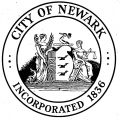According to the Bureau of Labor Statistics, the number of jobs for registered nurses (RNs) is expected to grow 19 percent from 2012 to 2022. Registered nurses are typically responsible for caring for patients and dispensing medication, although they might also work in schools, prisons, and other settings. To qualify for licensure in New Jersey, RNs must complete an accredited pre-licensure program such as an associate’s or bachelor’s degree, and they must pass the NCLEX-RN qualifying exam.
New Jersey
We've organized a comprehensive list of New Jersey nursing schools. Below you'll find information on specific nursing programs such as LPN certificates and ADN, BSN, and MSN degrees. You'll also find a profile of nursing education and careers in each major New Jersey city.
New Jersey nursing programs and careers
City-specific information
For our 2024 rankings of RN diploma programs, the research team at Nursing Schools Almanac compiled an extensive database of student performance on the National Council Licensure Examination for Registered Nurses (NCLEX-RN). Aspiring registered nurses in the United States must pass this examination before they may commence practice. Thus, student performance on the NCLEX-RN exam provides an excellent benchmark for comparing the relative quality of RN diploma programs.
For our 2024 rankings of ADN programs, the research team at Nursing Schools Almanac compiled an extensive database of student performance on the National Council Licensure Examination for Registered Nurses (NCLEX-RN). Aspiring registered nurses in the United States must pass this examination before they may commence practice. Thus, student performance on the NCLEX-RN exam provides an excellent benchmark for comparing the relative quality of associate’s degree programs.
For our 2024 rankings of LPN programs, the research team at Nursing Schools Almanac compiled an extensive database of student performance on the National Council Licensure Examination for Practical Nurses (NCLEX-PN). Aspiring practical nurses in the United States must pass this examination before they may commence practice. Thus, student performance on the NCLEX-PN exam provides an excellent benchmark for comparing the relative quality of practical nursing programs.
The Vineland-Bridgeton metropolitan area of New Jersey is home to more than 3,000 nurses. The most common roles are registered nurse (RN), licensed practical nurse (LPN), and certified nursing assistant (CNA). Many of these professionals completed their education at a local nursing school such as Cumberland County College, Vineland Adult Education Center, or Cumberland County Education Center.
If you’re looking for a fulfilling and challenging career, you might consider the nursing field. The three primary nursing roles – certified nursing assistant (CNA), licensed practical nurse (LPN), and registered nurse (RN) – all entail caring for patients in times of acute need.
The Newark metropolitan area is home to more than 30,000 nursing staff. What exactly do they do? The vast majority of Newark’s nurses fill one of three critical nursing roles.
Certified nursing assistant (CNA)
Nursing assistants help patients with daily living tasks and bedside care in a variety of settings, from hospitals to home care. New Jersey’s aspiring CNAs must compete a brief certificate program and pass a state-administered examination before practicing.
Licensed practical nurse (LPN)
At the most basic level, nurses help their sick and injured patients to heal, both physically and emotionally. If that type of work sounds appealing, you should consider entering the nursing profession. The nurses in Jersey City, a major New Jersey suburb of New York City, fill three critical roles.
Registered nurse (RN)
Registered nurses (RNs) fill the prototypical “nurse” role. They direct patient care in tandem with the medical staff, and many RNs progress into administrative or leadership roles. New Jersey’s RNs can follow four distinct education pathways: hospital diploma, associate’s degree, bachelor’s degree, or direct-entry master’s degree. All candidates must pass the NCLEX-RN national licensure exam upon graduation. With RN programs offered at both public and private institutions in the Edison / New Brunswick area, local students have ample choice.
The Philadelphia suburbs of New Jersey are dense and growing denser. The demand for healthcare workers of all kinds – and nurses in particular – will grow steadily over the next decade. In the process, these professions will become more challenging and more fulfilling. Prospective nurses in the Camden area can consider three primary nursing roles.
Atlantic City may be known for its lively gaming and tourism industry, but the area is also home to a robust healthcare sector. Major local nursing employers include AtlantiCare Health System and APS Healthcare.











